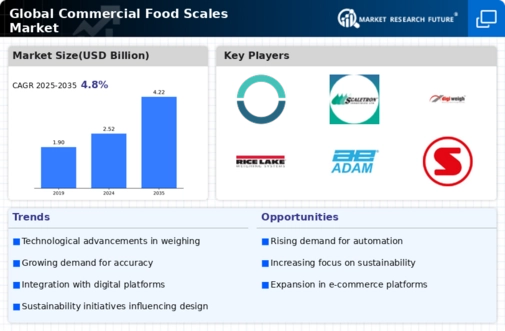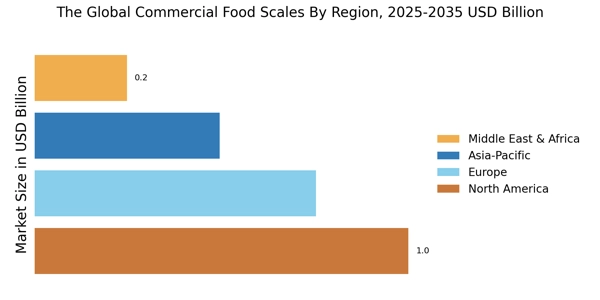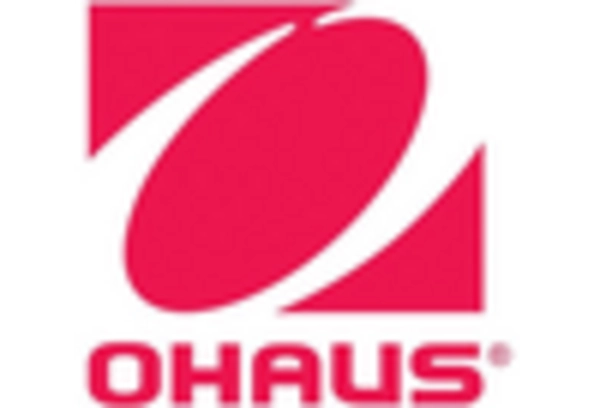Increasing Awareness of Portion Control
The growing awareness of portion control among consumers and food service providers is a significant driver for the commercial food scales market. As health consciousness rises, there is a greater emphasis on serving appropriate portion sizes to promote healthier eating habits. This trend is particularly relevant in restaurants and catering services, where accurate portioning can enhance customer satisfaction and reduce food waste. The market is likely to experience increased demand for scales that facilitate portion control, enabling businesses to meet consumer expectations while optimizing their food costs. This shift towards mindful eating practices is expected to contribute to the overall growth of the commercial food scales market, as operators seek to align their offerings with evolving consumer preferences.
Rising Demand for Accurate Measurements
The increasing emphasis on precision in food preparation and portion control drives the demand for advanced weighing solutions in the commercial food scales market. Accurate measurements are crucial for maintaining quality and consistency in food products, which is essential for customer satisfaction and regulatory compliance. As food safety regulations become more stringent, businesses are compelled to invest in reliable weighing equipment. The market for commercial food scales is projected to grow at a compound annual growth rate of approximately 5.2%, reflecting the rising need for accuracy in food service operations. This trend is particularly evident in sectors such as restaurants, catering services, and food processing, where precise measurements can significantly impact operational efficiency and profitability.
Focus on Food Safety and Quality Control
The heightened focus on food safety and quality control significantly influences the commercial food scales market. Regulatory bodies worldwide are implementing stricter guidelines to ensure that food products meet safety standards, which necessitates the use of precise weighing equipment. Businesses in the food sector are increasingly investing in commercial food scales to comply with these regulations and to enhance their quality assurance processes. The market is projected to see a steady increase in demand for scales that offer advanced features such as data logging and connectivity options, which facilitate compliance with food safety standards. This trend underscores the importance of accurate measurements in maintaining product integrity and consumer trust.
Growth of E-commerce and Online Food Services
The expansion of e-commerce and online food delivery services has a profound impact on the commercial food scales market. As more consumers turn to online platforms for their food purchases, businesses are increasingly required to ensure accurate weight measurements for shipping and delivery. This shift necessitates the adoption of advanced weighing technologies that can accommodate the unique demands of e-commerce logistics. The market is witnessing a surge in demand for scales that can provide real-time data and integrate seamlessly with inventory management systems. This trend is expected to contribute to a notable increase in the adoption of commercial food scales, as businesses strive to enhance their operational capabilities and meet consumer expectations for accuracy and reliability.
Technological Innovations in Weighing Solutions
Technological innovations play a pivotal role in shaping the commercial food scales market. The introduction of smart scales equipped with digital interfaces, connectivity features, and advanced analytics capabilities is transforming the way businesses approach weighing processes. These innovations not only enhance accuracy but also improve operational efficiency by providing real-time data and insights. The integration of Internet of Things (IoT) technology into commercial food scales allows for seamless data sharing and monitoring, which is increasingly valued in fast-paced food service environments. As businesses seek to optimize their operations and reduce waste, the demand for technologically advanced weighing solutions is expected to rise, driving growth in the market.


















